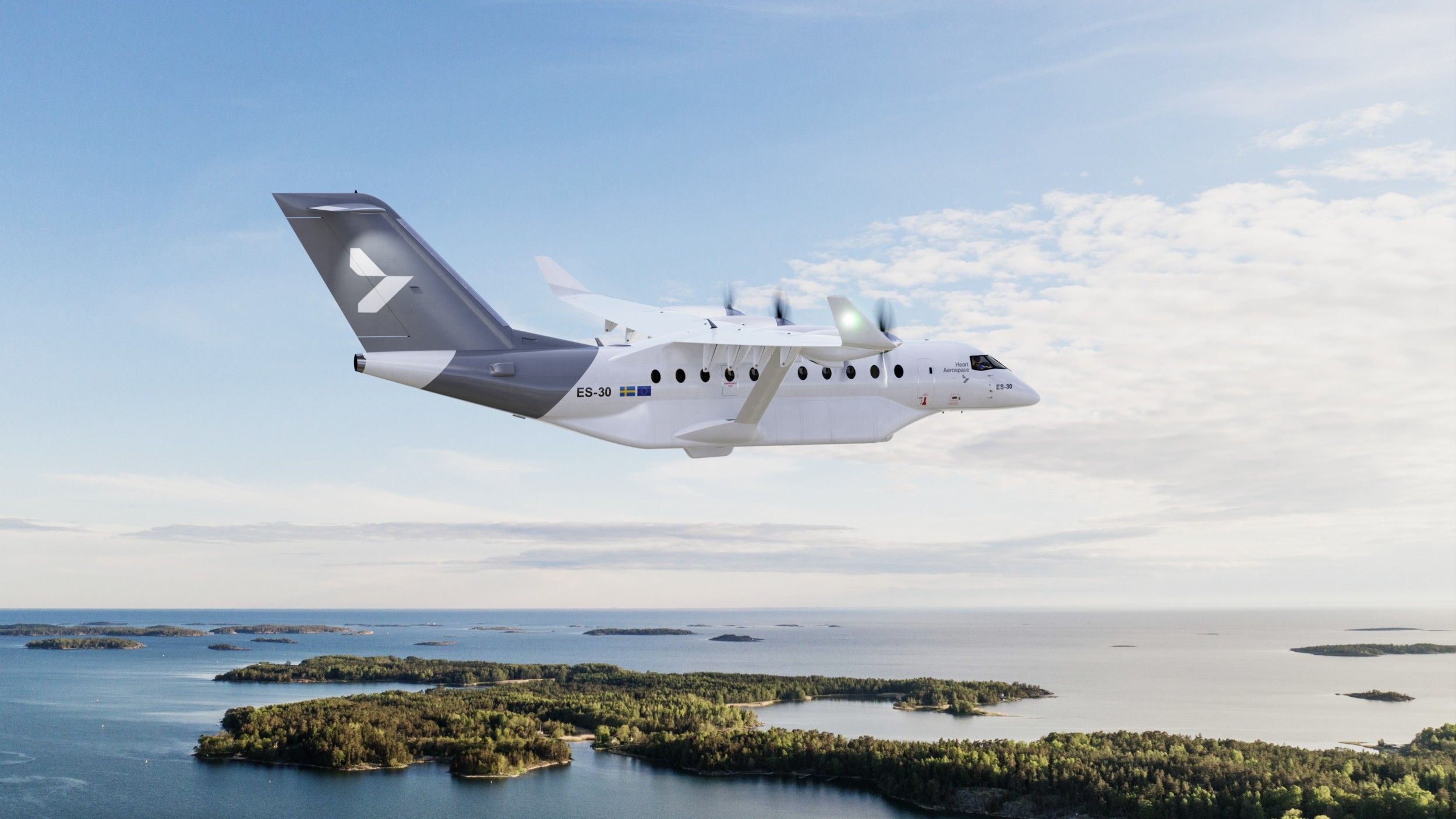The future of aviation is poised for a radical transformation, with innovative technologies promising cleaner, more efficient, and sustainable flight. One such development is the hybrid electric regional aircraft, designed to reduce carbon emissions significantly.
Sweden based Heart Aerospace is at the forefront of this revolution, spearheading the development of the ES-30, a 30-passenger aircraft capable of medium range flights powered by a combination of electric motors and hybrid turbogenerators. As the company gears up for the ES-30’s commercial debut in 2028, a groundbreaking milestone has been achieved with the completion of the first ever full scale demonstrator.
This experimental aircraft, featuring a 32-meter wingspan and the capacity to carry 30 passengers, showcases the pioneering propulsion system and battery technology developed in collaboration with BAE Systems.

The ES-30’s four propellers, driven by electric motors, will harness power from both the battery and the hybrid turbogenerators, marking a significant step towards a more sustainable future for aviation. The ES-30’s hybrid propulsion system offers several advantages over traditional jet-powered aircraft. By combining electric motors and hybrid turbogenerators, the ES-30 can reduce fuel consumption and emissions while maintaining performance.
Electric motors provide instant torque, enabling rapid acceleration and a quieter flight experience. The hybrid turbogenerators can be used to generate additional power during takeoff or climb, ensuring efficient operation in various flight conditions. The development of the ES-30 is a testament to the growing momentum behind sustainable aviation. As the world seeks to reduce its carbon footprint, the demand for cleaner and more efficient aircraft is increasing.
The ES-30 represents a promising solution to this challenge, demonstrating the potential of hybrid-electric propulsion in transforming the aviation industry. The Heart X1, a groundbreaking hybrid-electric regional aircraft, is poised to redefine sustainable aviation. With a projected electric range of 124 miles, supplemented by hybrid turbogenerators for an extended 400-mile flight, this innovative aircraft offers a promising solution to reducing carbon emissions in short-haul air travel.
The Heart X1’s initial focus will be on ground testing, including charging operations, taxiing, and turnaround procedures, before taking to the skies for its first fully electric flight in the second quarter of 2025. Beyond the X1, Heart Aerospace has ambitious plans for the future. A second demonstrator, the Heart X2, is slated to refine the design and serve as a pre-production prototype, with its maiden flight anticipated in 2026. The Heart X2 is expected to incorporate further advancements in technology and efficiency, building upon the lessons learned from the X1.

The potential of Heart’s electric regional aircraft has not gone unnoticed. The Federal Aviation Administration has recognized the company’s contributions to sustainable aviation by awarding a $4.1 million grant as part of its Fuelling Aviation’s Sustainable Transition (FAST) program.
Additionally, Heart Aerospace has garnered significant interest from major airlines, including United Airlines, Air Canada, and JSX, with hundreds of orders already placed for the aircraft.
As the aviation industry seeks to reduce its environmental impact, the Heart X1 and its successor represent a significant step forward in the development of cleaner, more sustainable air travel.
With its innovative hybrid electric propulsion system and promising performance capabilities, the Heart X1 has the potential to become a cornerstone of the future of regional aviation.

